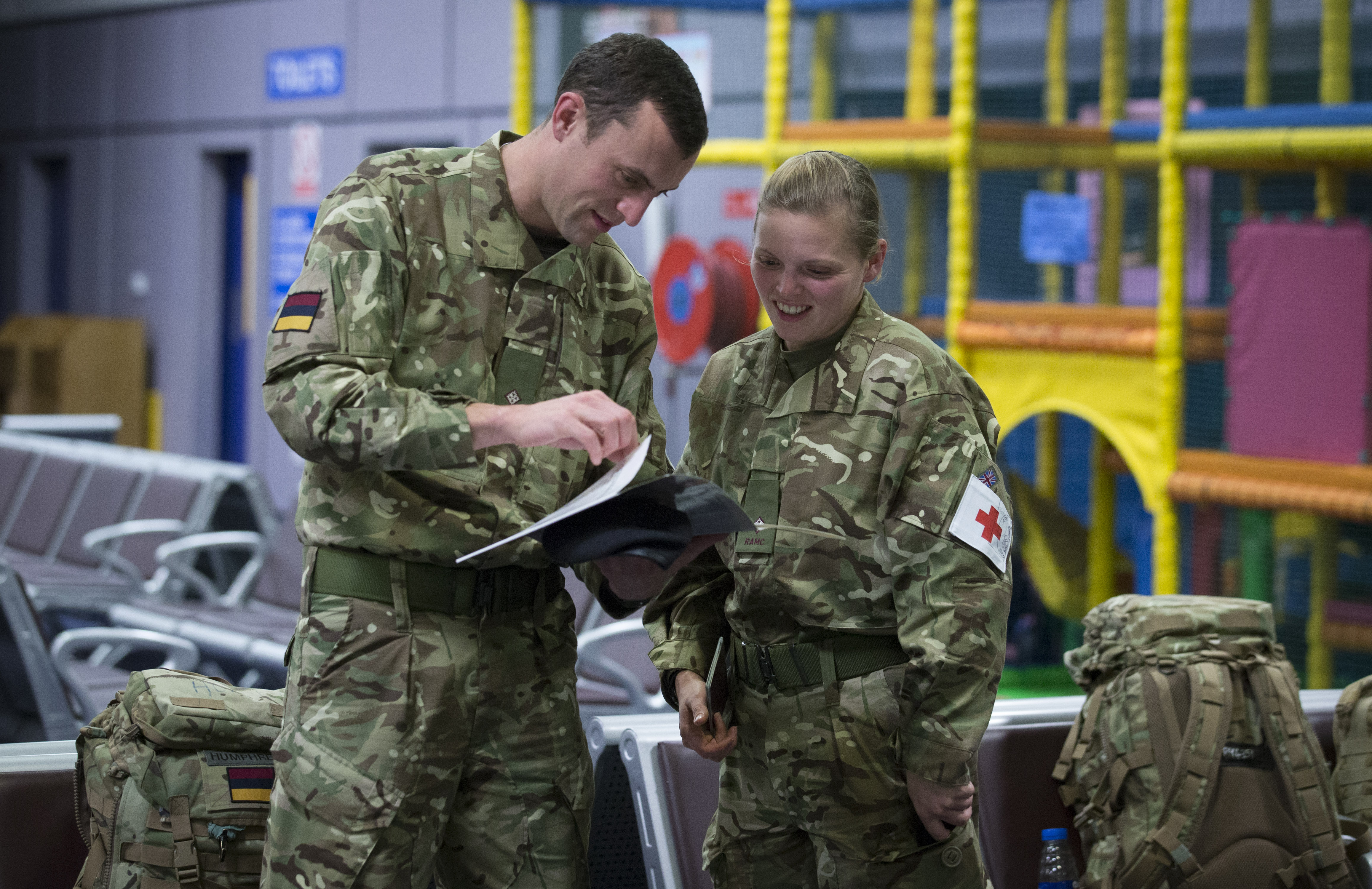
NHS England has stepped up its national campaign to recruit former Armed Forces members into the health service as Allied Health Professionals.
Following a successful webinar showcasing the occupational therapy profession last month (17 April), NHS England is planning further events to cover the remaining 13 Allied Health Professions (AHPs), running until March 2025.
The drive comes as part of the NHS Long Term Workforce Plan, encouraging both serving and retired armed forces personnel and their families to consider a career in the health service. It supports the Workforce Plan’s ambition to have 71,000 more allied health professionals in place by 2036/37.
'Fulfilling new careers'
Paul Chapman, allied health profession programme manager at NHS England, said: “Former members of the Armed Forces looking to join the NHS are a huge asset to the health service.
“We recognise the skills they bring and the value they provide, and we want to make it as easy as possible for them to find new roles and make the transition.
“We are confident we can provide them with the support they need to build fulfilling new careers where they can make a real difference to people’s lives.”
Each year at least 12,000 military personnel leave their roles in the armed forces for a variety of reasons, with many of them looking to switch careers after completing their service, a spokesperson for NHS England explained.
“Their transferable skills, including leadership, resilience and compassion, leave them with much to offer the NHS, and many already meet the entry requirements to undertake a suitable training programme,” they added.
'An exciting and valuable career'
Universities across England are now hosting a series of open days, giving attendees virtual, real-time insights into the various careers on offer.
The first such event showcased occupational therapy careers, hosted at Guys and St Thomas’ NHS Foundation Trust and was broadcast across five different university campuses.
Sandra Noonan, chief AHP at Guy’s and St Thomas’ NHS Foundation Trust, said: “Allied Health Professionals are an essential part of our health service – helping to treat, rehabilitate and improve the lives of our patients. By taking part in this new initiative, we hope to support members of the Armed Forces community to consider an exciting and valuable career as an AHP, where they can make a difference to the lives of many people.”
Attendees heard stories from those with lived experience of moving from an armed forces career to being an AHP, and were able to watch an occupational therapist treat patients in real time from the point of view of a clinician wearing a headset. A second clinician was available to describe what their colleague was doing through a separate audio feed.
'A fantastic depth of skills'
Allied health professions make up the third largest workforce in the NHS, behind doctors and nurses, and range from dietitians, radiographers and paramedics to podiatrists, orthotists, operating department practitioners and others.
Navina Evans, chief workforce officer at NHS England, said: “This campaign is a fantastic example of the NHS finding new and innovative ways to showcase the brilliant careers on offer in the NHS – with armed force recruits able to experience different roles in real time before deciding if it is a career they would like to pursue.
“Growing the number of allied health professionals in the NHS is a key part of the NHS Long Term Workforce Plan - and our ambition is to increase the number of these professionals by around 70,000.
“To succeed in this goal and build a workforce which is fit for the future, we need to recruit staff from a wide range of backgrounds and former armed service personnel offer a fantastic depth of skills that are suited to these professions.”
Dr Andrew Murrison, minister for defence people and families said: “The UK's Armed Forces have some of the very best people in the workforce. I want our people to stay in defence but their personal qualities, skills and experience make them highly attractive to any organisation. NHS England's campaign offers new and rewarding opportunities to service leavers looking for a career within our health service.”
(Image: British Army medics, by Matt Cardy/Getty Images)
